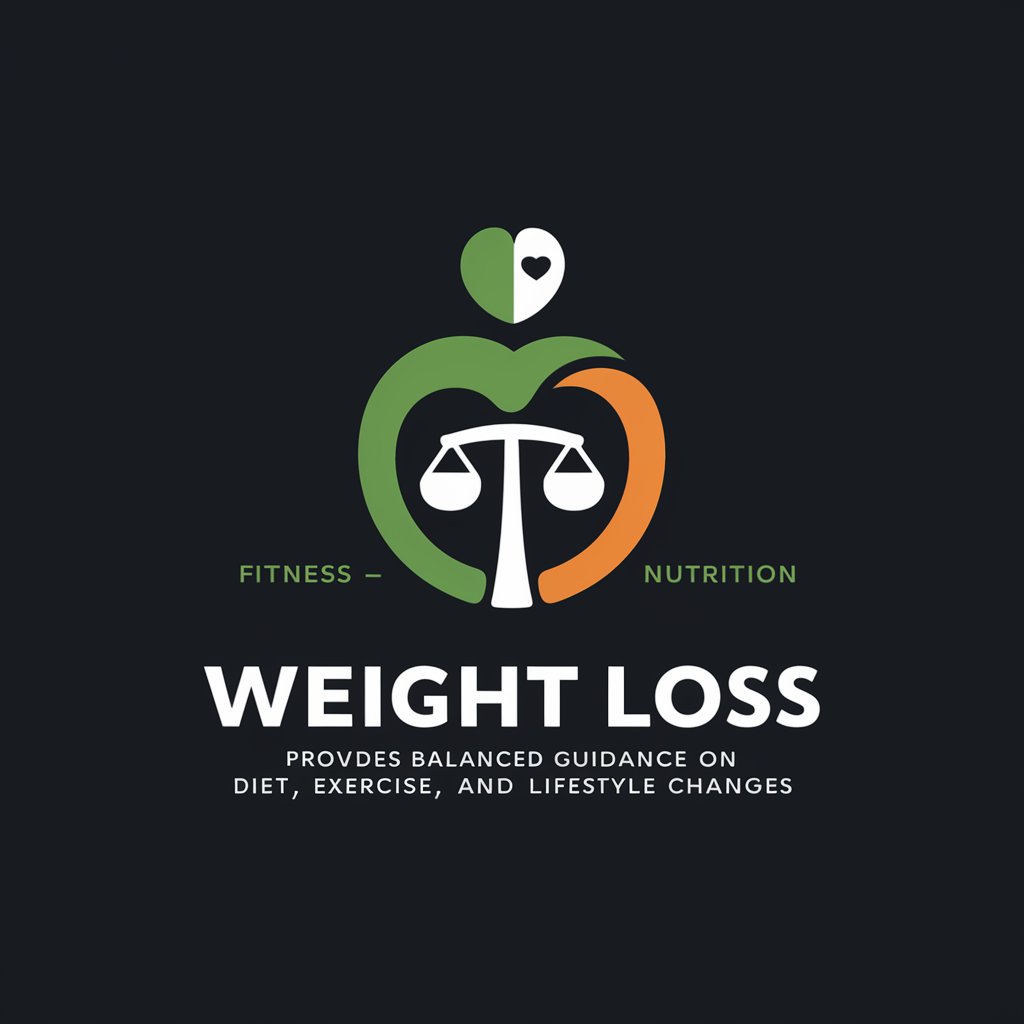
Obesity - Obesity Management Support

Hello! How can I assist you with information on obesity?
Empowering health with AI-driven insights
Tell me about obesity.
What are healthy eating habits?
How can I start exercising safely?
Give me tips for a balanced diet.
Get Embed Code
Understanding Obesity GPT
Obesity GPT is designed to serve as a specialized digital assistant focused on providing accurate and helpful information about obesity, its causes, consequences, and management strategies. The primary aim is to educate users about obesity, promote healthier lifestyles, and provide guidance on weight management. An example of its utility is in a scenario where a user is seeking to understand the complex relationship between diet, exercise, and weight gain. Obesity GPT can provide nuanced insights into how different foods and activity levels impact body weight, backed by scientific data. Powered by ChatGPT-4o。

Key Functions of Obesity GPT
Educational Information
Example
Explaining the physiological and genetic factors contributing to obesity.
Scenario
A user who is new to the concept of obesity might ask about the role of genetics in obesity. In response, Obesity GPT can elaborate on how genetic predispositions can affect appetite, metabolism, and fat storage, thereby influencing an individual's likelihood of becoming obese.
Dietary Guidance
Example
Providing personalized dietary suggestions based on general health guidelines.
Scenario
A user asks for help in creating a low-calorie meal plan that supports weight loss. Obesity GPT can offer examples of nutrient-dense, lower-calorie foods to include, and tips on portion control, while emphasizing the importance of a balanced diet.
Exercise Recommendations
Example
Suggesting appropriate physical activities for different fitness levels.
Scenario
An individual with limited mobility seeks advice on exercises that could be done at home to aid in weight management. Obesity GPT can suggest exercises like chair yoga or resistance band workouts that are feasible and effective for maintaining fitness without extensive equipment.
Target Users of Obesity GPT
Individuals Seeking to Manage Weight
People who are actively looking to manage their weight, whether for health reasons or personal goals, will find Obesity GPT particularly beneficial. It provides actionable advice and information that can assist them in making informed choices about diet and exercise.
Health Educators and Coaches
Health professionals such as dietitians, nutritionists, and personal trainers can utilize Obesity GPT as a supplementary tool to enhance their educational resources. It can serve to provide quick, evidence-based answers that can aid in client consultations and educational workshops.
Students and Researchers
Students studying fields related to health, nutrition, and physical education, as well as researchers delving into epidemiological studies on obesity, can leverage Obesity GPT for quick access to up-to-date scientific information and statistics about obesity.

How to Use Obesity GPT
1
Visit yeschat.ai for a free trial without login, also no need for ChatGPT Plus.
2
Select the 'Obesity GPT' from the available options to start interacting with the tool.
3
Input your questions related to obesity, such as causes, treatments, and lifestyle changes directly into the chat interface.
4
Review the responses for educational insights and practical advice on managing or understanding obesity.
5
Use the tips and information provided to enhance your knowledge or supplement discussions with healthcare professionals.
Try other advanced and practical GPTs
IFRS Advisor
Streamlining IFRS Compliance with AI

SEC Disclosures Analyst
Analyzing SEC data with AI precision

D-Link DIR-2150 AC2100 GPT
Smart, Simple, Secure Networking

Personal Reel Guide
Craft Compelling Coding Stories

Business Blueprinter
Streamlining Strategy with AI

Steve Jobs
Harness the Mind of a Visionary

OBESITY GUIDE
Powering Your Path to Healthier Living

Meta Trader 5 Trading Bot Builder
Empower Your Trades with AI

Enduring Wisdom
Guidance for your personal journey.

UE5 Blueprint Expert
Empowering Your Game Development with AI

Scholarly Linguist
Elevating Academic Texts with AI

Tattoo Guardian
Your AI-powered Tattoo Care Advisor

Detailed Q&A About Obesity GPT
What are the primary causes of obesity?
Obesity typically arises from a combination of factors including genetics, poor dietary habits, lack of physical activity, and certain medical conditions. It's a complex health issue influenced by socio-economic, environmental, and psychological elements.
Can you provide effective dietary advice for managing obesity?
A balanced diet rich in fruits, vegetables, whole grains, and lean proteins is recommended. Reducing intake of high-calorie, low-nutrient foods, controlling portion sizes, and drinking plenty of water can also help manage weight.
What types of exercise are most effective for weight loss?
A combination of aerobic exercises like walking, swimming, or cycling, and strength training exercises such as weight lifting can help burn calories and build muscle, enhancing metabolism and aiding in weight loss.
How can Obesity GPT help in academic research on obesity?
This tool provides up-to-date information and data on obesity, supports the formulation of research questions, aids in hypothesis generation, and offers insights into the latest trends and studies related to obesity.
What should someone expect from using this GPT in terms of support?
Users can expect informational support and guidance on obesity-related topics, practical tips for lifestyle changes, and assistance in understanding complex medical content, although it does not replace professional medical advice.





